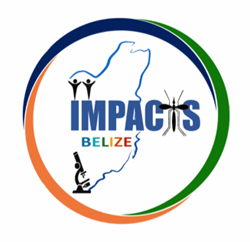Integrated Mayo Program for Arbovirus Community education, Training and Surveillance (IMPACTS)

Earlier this year, John and Nicole, along with Mayo Clinic colleagues and the Ministry of Health, Belize announced a five-year collaboration to better understand and respond to Zika virus and other arboviral infections in the country. The project approach is four-tiered and draws on expertise from both Notre Dame and Mayo Clinic.
The first tier aims to improve medical diagnostic capacities in Belize so technicians can more efficiently and accurately diagnose Zika and other mosquito-borne diseases. The Mayo Clinic team is working with Belizean microbiologists to develop quality assurance metrics and to ensure accurate in-country results. The team has also held training sessions for Belizean technicians both in-country in Belize and in Rochester, Minnesota.
The second tier focuses on human population surveillance to help understand which illnesses are circulating in Belize and in which districts. The types and frequency of vector-borne infections encountered in northern Belize are not necessarily the same as those seen in the south, Wilson explains.
The third tier of the project focuses on insect vector surveillance. Achee, Grieco, and a team of Notre Dame students, Ministry of Health Vector Control officials and local students are performing a countrywide effort to trace mosquitoes and other carriers of pathogens. The researchers are capturing adult mosquitoes and their eggs in various communities to study them in their lab at the Belize Vector and Ecology Center. There they will identify the type of vector, test to see if the vector is carrying Dengue, Zika or similar diseases, and then use the results to map problematic mosquito pools and overlay with confirmed arbovirus cases.